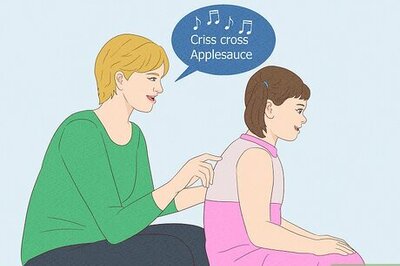
views
GENEVA: The coronavirus is a tornado with a long tail and rising infections among young people could spread to more vulnerable older people and cause an uptick in deaths, the World Health Organizations top official in Europe warned Thursday.
Dr. Hans Kluge said younger people are likely to come into closer contact with the elderly as the weather cools in Europe and families move activities inside.
We dont want to do unnecessary predictions but this is definitely one of the options: that at one point there would be more hospitalizations and an uptick in mortality, he said, speaking from Copenhagen, site of WHO’s European headquarters.
He insisted no one is invincible but acknowledged that most coronavirus deaths are among the elderly.
It may be that younger people indeed are not necessarily going to die from it but its a tornado with a long tail and its a multi-organ disease, he said.
Kluge said 32 out of 55 states and territories in WHOs European region have recorded a 14-day new infection rate increase of over 10%, calling that definitely an uptick which is generalized in Europe.
But he also suggested that European health authorities are more prepared than in February when the continent was on the cusp of a huge surge in cases.
In February, we were caught by the speed and the devastation and the default option was to lock down and reboot,” Kluge said. “Now we are much more sophisticated in our knowledge of what works. In that sense, that its possible to manage the transmission of the virus in society and have a running economy, and very important, have an educational system open.
He said the autumn presented a tricky situation because of widespread school reopenings, the onset of the flu season and the increased mortality among older people in winter months.
Kluge said current evidence showed schools have not been a main contributor to the epidemic, and pointed to growing evidence that children do play a role in transmission but more often in social gatherings than at schools.
The U.N. agency this week recommended that children 6 to 11 wear masks at times to prevent the spread of the virus, especially in areas of wide community transmission or where social distancing cannot be maintained, and children 12 and older where masks as often as adults.
As cases across Europe have increased amid the summer holiday season, WHO also issued advice this week for hotels and related businesses.
WHO said hotels should consider reducing occupancy rates to ensure social distancing guidelines can be met and said all staff and guests should comply with basic COVID-19 prevention measures, like frequent hand-washing and mask-wearing.
It said physical barriers like protective plexiglass shields should be used to separate hotel staff and guests at reception desks.
WHO said national guidance should be followed on whether or not indoor dining was allowed but that buffets are not recommended.
It said gyms, pools and spa facilities could be used with certain restrictions, like determining the maximum number of people to ensure social distancing.
___
Follow APs pandemic coverage at http://apnews.com/VirusOutbreak and https://apnews.com/UnderstandingtheOutbreak
Disclaimer: This post has been auto-published from an agency feed without any modifications to the text and has not been reviewed by an editor




















Comments
0 comment